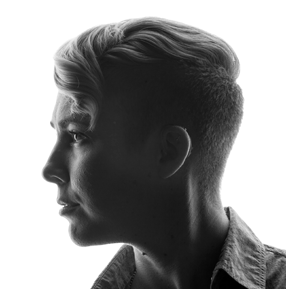10 AM is When You Come to Me
In some other life, I can hear you
breathing: a pale sound like running
fingers through tangled hair. I dreamt
again of swimming in the quarry
& surfaced here when you called for me
in a voice only my sleeping self could
know. Now the dapple of the aspen
respires on the wall & the shades cut
its song a staff of light. Leave me—
that me—in bed with the woman
who said all the sounds for pleasure
were made with vowels I couldn’t
hear. Keep me instead with this small sun
that sips at the sky blue hem of our sheets
then dips & reappears: a drowsy penny
in the belt of Venus, your aureole nodding
slow & copper as it bobs against cotton
in cornflower or clay. What a waste
the groan of the mattress must be
when you backstroke into me & pull
the night up over our heads. Your eyes
are two moons I float beneath & my lungs
fill with a wet hum your hips return.
It’s Sunday—or so you say with both hands
on my chest—& hot breath is the only hymn
whose refrain we can recall. And then you
reach for me like I could’ve been another
man. You make me sing without a sound.
Copyright © 2019 by Meg Day. Originally published in Poem-a-Day on July 1, 2019, by the Academy of American Poets.
“Hearing folks frequently ask Deaf folks to imagine our lives differently: they ask how we haven’t killed ourselves without music (because they would); they want to know how much we miss the sound of birds, our lover’s voice; and they don’t want to learn ASL but they want to have sex with the lights out. As I try to de-center nondisabled and hearing priorities in my work, I’ve had to think differently about the relationships I have with people who occupy those identities. This poem refuses the basic complaints of audism—and the simultaneous oversexualization of queer bodies, and desexualization of Deaf and disabled ones—in order to tend the nuances of being TransDeaf and falling in love with a cis woman who is disabled but not Deaf. It’s a poem about the complicated and intimately gendered synesthesia of sight as sound. It’s a love poem about DEAF-GAIN: I can imagine another life, but I don’t want it.”
—Meg Day

